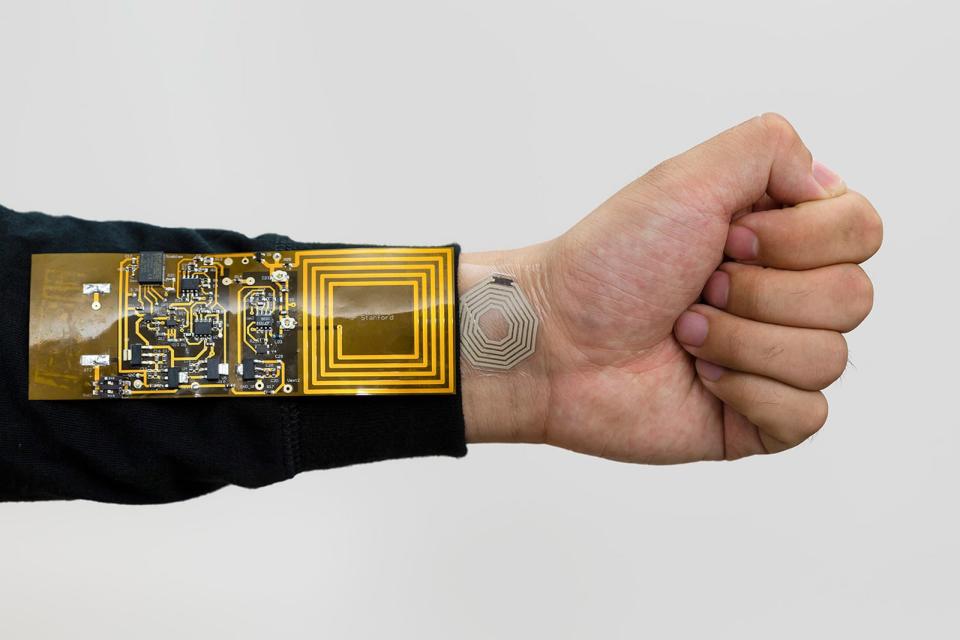Sticker sensor monitors your body using wireless power
It wouldn't interfere with your behavior.
Wearable body sensors have a common problem: they need power and antennas, and all that equipment leads to bulky devices that influence your behavior. Stanford researchers, however, have developed a system that could be almost imperceptible. Their BodyNet sticker sensor gathers power and transmits data using an RFID connection to a receiver on nearby clothing, making the sensor itself about as comfortable and flexible as an adhesive bandage. It measures subtle changes in skin that provide a wealth of data for the body, whether it's your heartbeat, breathing rate or muscle activity.
The antenna proved to be the main challenge. They only had to screen-print metallic ink on a rubber sticker to create the antenna, but its signals could weaken as the body moved. The scientists had to develop a novel RFID system that could reliably send signals despite the constant changes.
The receiver itself is much larger and uses Bluetooth to send data to a smartphone or PC.
BodyNet is currently limited by the need for proximity between the sticker and receiver. That's fine for the initial expected uses, such as tracking heart conditions and sleep disorders, but it wouldn't be very useful in exercise conditions where you can't count on ideal sensor placement. The team may solve this by weaving antennas into the clothing itself.
There are plans beyond that, too. The researchers are already working on stickers that could use sweat to detect body temperature and stress, and they hope to one day offer a full-body sensor array that could collect data while staying out of your way. That could improve the quality of life for people with health conditions, not to mention help athletes track their performance without limiting their movements.


